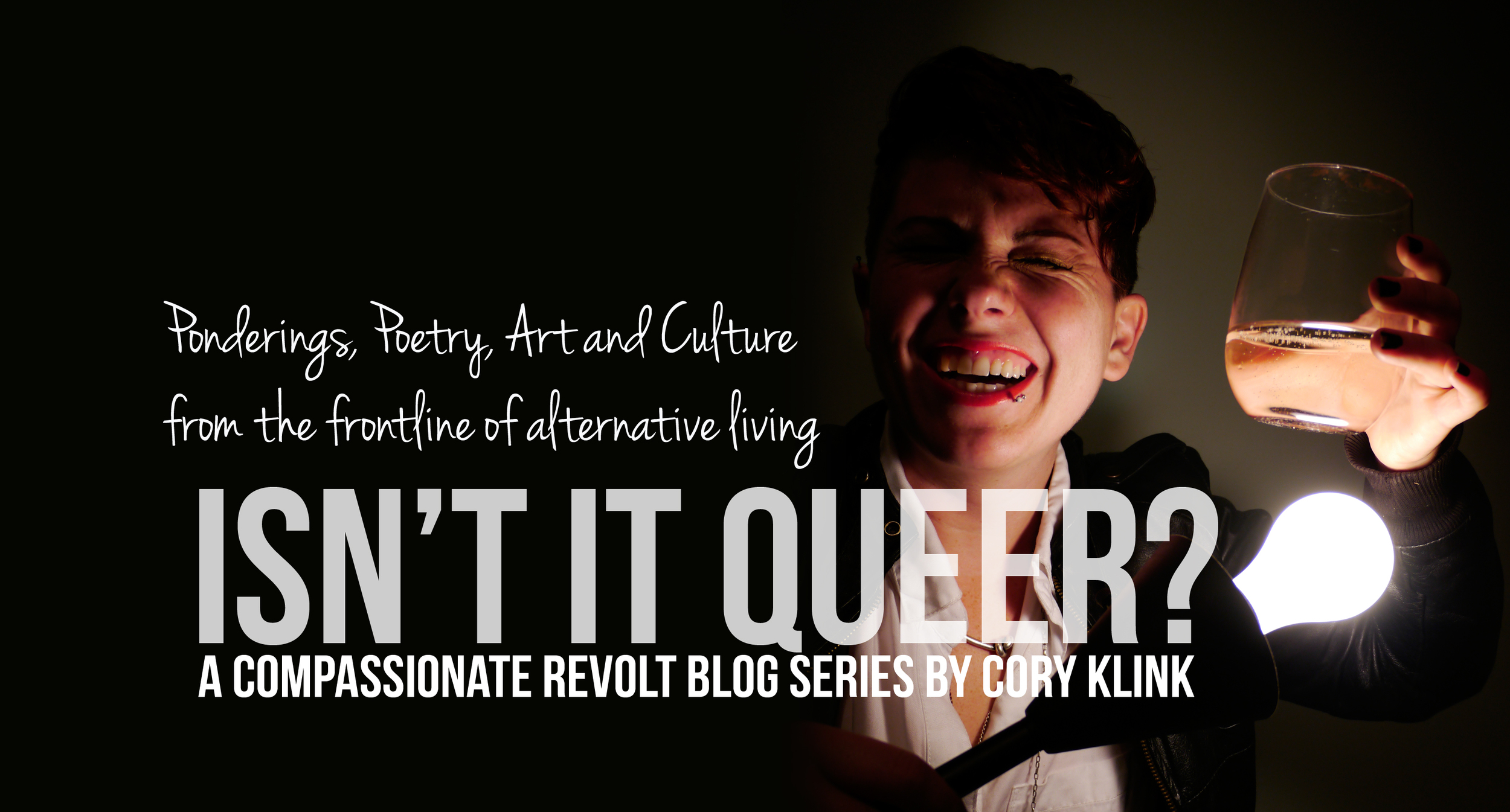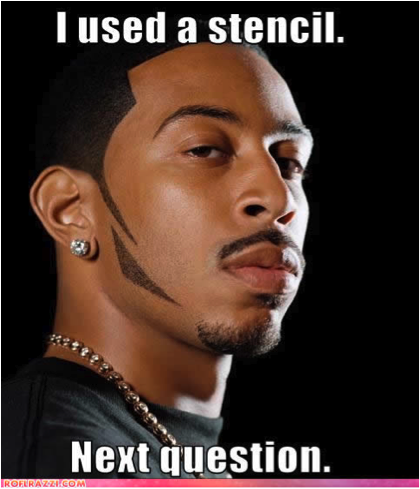Disclaimer: This piece uses a veritable shit ton of “queer-speak” or words used by activists in the queer, trans and genderqueer communities. Note, I am not apologizing but I am excitedly inviting individuals who have yet to read an article of this nature, to embrace the new vocabulary. Please take into account that all of the words developed by queer activists were made with the intention of validating people’s identities, uniting communities and helping individuals to grow and feel safe being themselves. My critique of the use of this new generation of words, is to stimulate conversation and encourage inclusivity and sensitivity. Also, if you have any questions about terms such as genderfluid, trans, or cis, I would like to kindly direct you to google. Enjoy!
I heard by a sour word of mouth recently that there are folks in the LGBTQ-ABCD's positive community that are less than positive in regards to genderqueer folks choice of pronouns. I was made aware of multiple genderqueer individuals that believe that in order to use they/them pronouns, one has to be androgynous (and also that masculine folks should use he/him and feminine she/her). That sounds to me like a rule made up by cis people. Just sayin. Why so derisive? Why so exclusionary? Why, and according to whom, don’t individuals get to pick their own pronouns? The dude does not abide. It’s another example of people, within their own communities, bullying each other because of their own projected discomfort with people refusing to conform to gender binaries. It’s problematic and does not foster progress toward a dynamic understanding of the gender spectrum.
I also want to acknowledge the more talked about tension between non-binary folks and transmen/transwomen regarding identification presentation. There are ways in which the philosophy of genderlessness, agender, genderfluidity etc. have been interpreted as being threatening to people who identify as transmen or transwomen. They/them pronouns are sometimes seen as threatening or invalidating to his/her already persecuted and marginalized identity. On the other hand, individuals under the non-binary and/or genderqueer umbrella also find it frustrating to be accused of being not “trans” enough because they did not choose to transition from their assigned sex and conditioned gender to “the opposite one”. This is a gender-binary enforcing concept at best, and especially harmful when so many genderqueer individuals struggle with their own transitions. There are challenging emotional aspects of accepting your place on the gender spectrum as well as whether or not you would like to pursue physical transition procedures, such as hormone therapy or surgery.
To summarize for our readers that are less fluent in queer-speak, there will always be debate about fitting into the community “enough.”
Oh, the age old question of enough. “Have they struggled “enough” to be part of our community?” For instance, “are bi-sexuals gay enough?”, “Do non-binary people count as trans?”, “Do you count as a “real” insert race if you are mixed race?”. You can see how well lubricated that downward slope becomes.These questions are often asked by members of marginalized communities in a pattern that mimics patriarchal, white, cis-male tendencies to constantly invalidate the power of one's peers in order to protect one's community from further persecution . These questions of “enough” are exclusionary and derisive. Ironically they use a vocabulary (cis, trans, non-binary…) initially intended to offer validation to previously unrecognized alternative identities. The idea that any one individual has to prove their pronoun, experience of culture or race, sexual orientation, or any other major facet of one’s identity, that really should defined by the unique experience of the individual, is ludicrous. An individual's experience of gender is an absolutely unique facet of their personality and they should be allowed to pick what identifiers suit them. Not to say white people should be allowed to pick their race, that’s not how it works Rachel Dolezal. That’s just appropriation.
I bring the fruit cocktail, vocabulary of queer politics to the attention of the reader less because I’m invested in people “getting it right”, and more to encourage people to remember why we are hacking the most colonial language in human history, in the first place. In my humble gay motherfucking opinion, language simultaneously defines and limits our existence. Which gives us the incredible opportunity to create communities that have space within them for everybody on the gender spectrum, by editing and improving the language we were taught. Yes everyone. Cis-gendered female femmes who dream of barbies for days, transmasculine fairies who are only butch on fridays and ain’t nobody can tell what they were assigned at birth, and transwomen who like forest green doc martins and a matching mohawk. Everyone at EVERY point on the gender spectrum should be welcome to identify as they please, and naturally, a good ally for this community would then be defined as someone who can hold space for people without questions of whether they are “enough”.
-To your personal revolts and riots and especially to your learning,
Cory
-----------
Cory is a poet and sex worker in the Los Angeles area. They have worked in mental health, education, social justice and fashion blogging and aims to lead by example through bravely living an examined lifestyle.
"The learning process is something you can incite, literally incite, like a riot." -Audre Lorde
———-
There are photographs in this post that were borrowed lovingly from the internet and do not belong to us. All are linked and credited to the best of our abilities in hopes of attracting more traffic to the photographers and websites who have blessed us with this imagery. The inclusion of a photograph here should not be interpreted as an assertion of the subject’s or artist’s identity or beliefs. If there is a photo included here that belongs to you and you want it removed, please email compassionaterevolt@gmail.com and it will be removed promptly, no questions asked.





